Humankind has been trying to solve the mystery of dreams for as long as they’ve existed. Today there is even a special discipline in the study of dreams called oneirology. Those who prefer the esoteric side of things over science love to interpret their dreams according to various dream books and believe that they can predict the future. But psychologists think that dreams accurately reflect our current condition and that our subconscious tries to tell us something important via dreams from time to time.
We at Bright Side have learned that there are dreams that are common for all of us. Each of us sees these types of dreams every now and then. These dreams are caused by our ancient instincts, a cultural code, the experience of our ancestors, and personal experience. A psychologist and an expert in the field of dreams, Patricia Garfield, calls them “universal dreams” and says, “Like a hearty stew that is rich with local produce, the universal dreams differ among different peoples, but they are all nourishing variants of the same wholesome meal. They are as old as humanity and as widespread as our globe.”
1. Falling
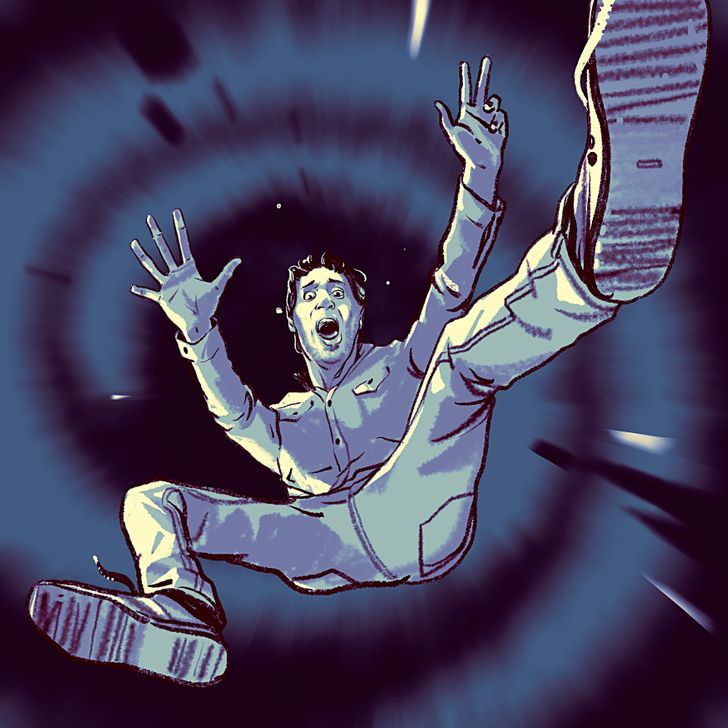
In adulthood, we see falling more often than flying. According to the psychologist Ian Wallace, a dream about falling symbolizes the fear of losing control. You can’t control something in your life anymore because some drastic changes that you were not ready for took place in your life. Think about what sphere of life (work, relationships, finances, health, etc.) you feel most suppressed or vulnerable in as well as the ways to correct it.
Some scientists explain dreams about falling with simple physiology. As the body is sinking into sleep, the nerve system starts to calm down, your blood pressure and heart rate decrease and your falling asleep brain (especially if it was overwhelmed during the day) can perceive this physiological change as danger or an approaching death and therefore, makes you wake up suddenly.
The opposite version of this dream is flying which signifies freeing oneself from some hard burden and getting the desirable freedom.
2. Teeth that fall out and injuries
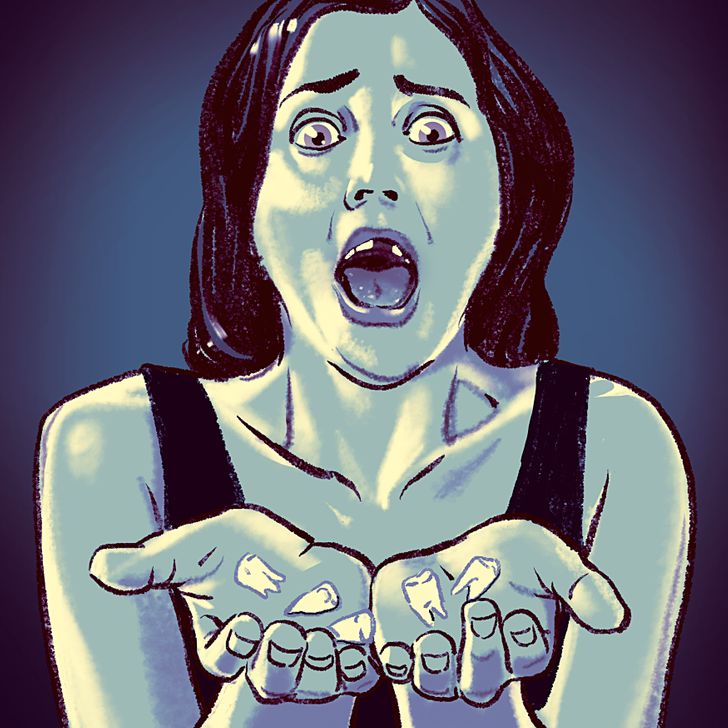
Our subconscious interprets teeth as an indicator of strength, and an ability to “bite off” a piece of the world. “Perhaps, you have recently been feeling unarmed and helpless in the real world,” Penney Peirce explains.
Patricia Garfield, another expert who’s studied dreams for many years, connects dreams about teeth falling out with hidden anger. As a rule, when we suppress anger, we clench our jaw, and our teeth might start to creak and grind. This dream might be signaling that it’s high time to get rid of negative feelings.
We often have dreams where someone close to us is wounded or sick. Those dreams cause consternation; however, from psychology’s point of view, things are not that bad. It’s simply our fears of the future and inevitable changes with those close to us. If you see your own death, it means that some part of you is dying and staying in the past to give space to something new.
“Opposite” dreams about birth and recovery usually appear when something new is taking place in a person’s life (like a new job or project) and symbolize a new experience.
3. Failure at an exam or public performance

You’re about to take an exam and suddenly realize that you don’t remember anything or you can’t say a word when standing in front of a big crowd. These dreams might be experienced not only by students and school kids but also by people who have graduated a long time ago. It’s likely that you had some stress shortly before going to sleep or was extremely worried about something. In this case, it’s better to take a short break and relax.
4. Being chased or persecuted
Such dreams have several different meanings. An expert in the field of dreams named Lauri Loewenberg says, “People that tend to avoid conflict, who are afraid of ruffling feathers or causing issues will have the recurring dream of being chased.”
Pay attention to the thing chasing you — they symbolize an unpleasant feeling or situation that you try not to think about in real life. It can be debt or addiction. Are you chased by a person you know? Think about what or who you associate this person with. They might indicate some other person or even a part of your personality that you don’t want to admit (like a hidden talent or aspiration) in your dream.
There’s also a theory saying that dreams about running away from someone are simply the echoes of primitive instincts that are in our genes thanks to our ancestors. All because they were constantly running from predators.
5. Inappropriate clothes or an absence of any
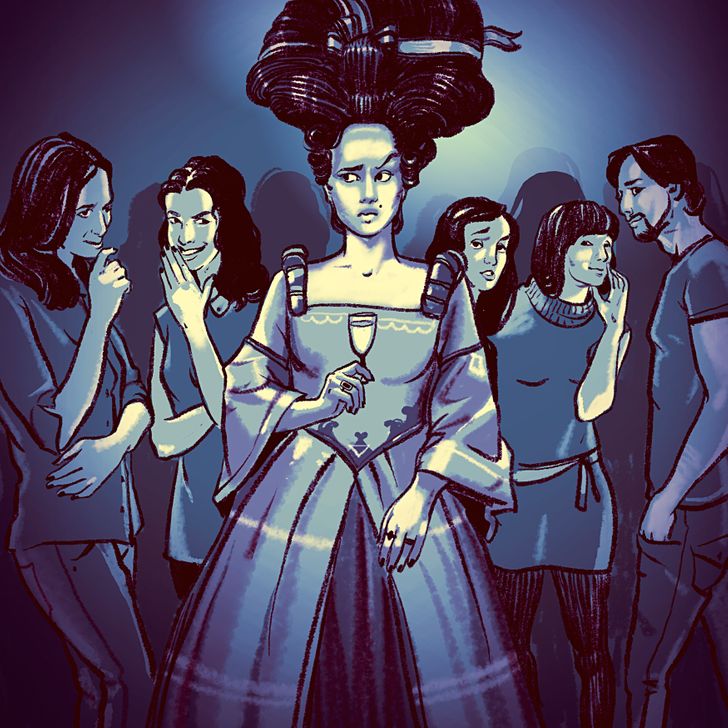
In your dream, you turn up in a public place wearing inappropriate clothes or not wearing anything at all. In this situation, it’s important to pay attention to the feelings you encountered in your dream. These dreams are usually followed by a feeling of shame and embarrassment.
Psychologist Ian Wallace notes, “It means that you feel vulnerable at your new job or in your new relationship and are afraid that others will learn about your weaknesses and disadvantages.” However, if you don’t feel any shame in your dream but instead feel proud of yourself, the dream has the opposite meaning. Perhaps you feel a lack of recognition and admiration and would like others to see your talents as well as your personality more.
6. A catastrophe or an apocalypse
We’ve all dreamed about natural or man-made disasters where we’re scared for our own lives and the lives of those close to us. These dreams might indicate personal problems that have gotten out of control or are a result of feeling threatened by something. Of course, constant messages in the media about catastrophes and terrorist acts worsen the situation. As a result, we start feeling vulnerable in the modern world.
Sometimes, when having a nightmare, we try to shout out loud but feel that our voice has left us, which causes an even bigger fear. Psychologists explain it as sleep paralysis. During the last phase of sleep, when we have dreams, our brain purposefully paralyzes the body so that we can lie still and not “live” in our sleep by running, jumping, etc. People who have sleep paralysis usually wake up before the end of the last phase and enter a state between sleep and reality for a short period. This can be felt as an inability to move, speak, and, in some cases, breathe.
7. Faulty equipment or vehicles
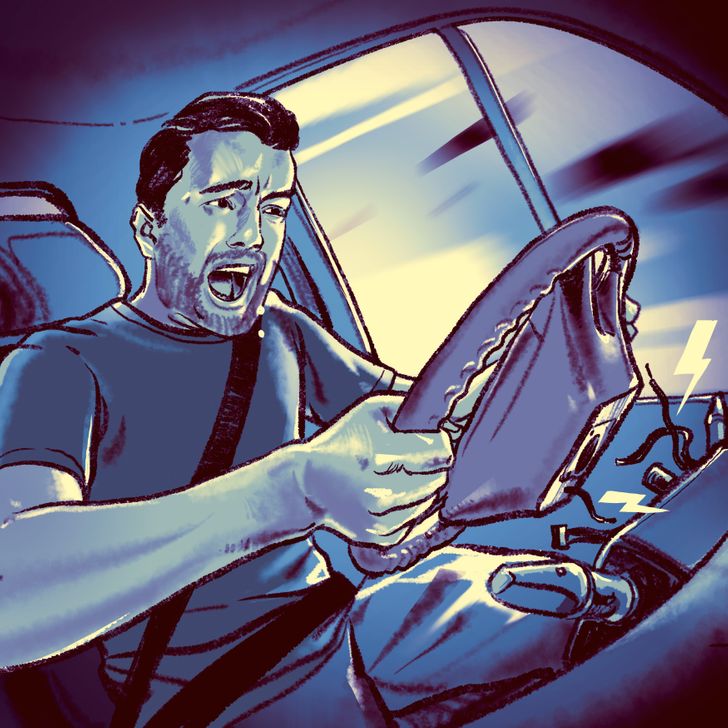
You try to use some gadget or device, and it breaks right away. For example, your phone stops working, and you can’t call anyone. According to Patricia Garfield, these dreams are more often experienced by women and symbolize worries about relationships or losing an emotional connection with someone.
Dreams in which you’re trying to operate a vehicle that doesn’t work properly or breaks down are in the same category. You are likely missing support and can’t cope with a difficult life situation by yourself.
8. Pregnancy
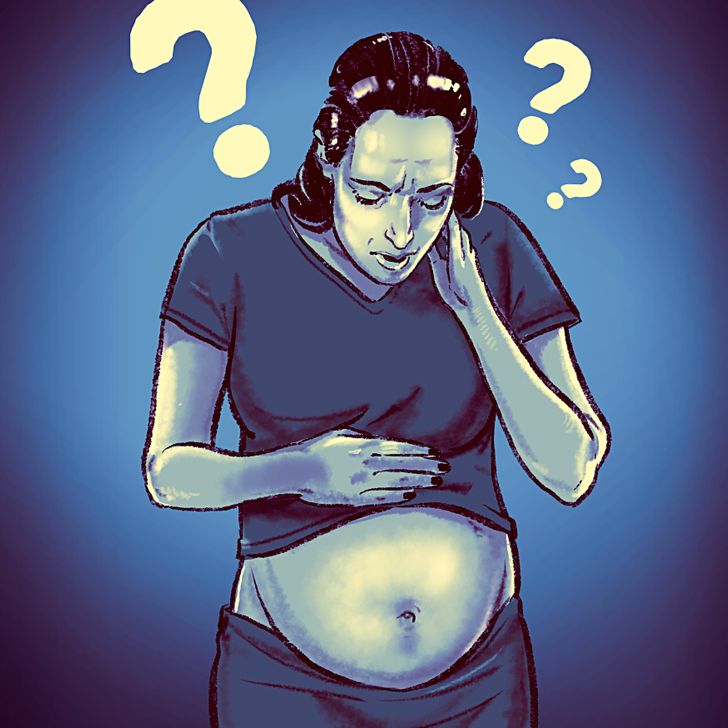
As strange as it might sound, it’s not only women who can have dreams about pregnancy. A psychologist name David Bedrick says, “Pregnancy symbolizes something new growing inside us.” You subconsciously dream about “giving birth” to a new fascinating creative project. It can be anything from writing a book to repairing a house. It’s time to set a goal and show the world how you can take on this new role.
If you’re not pregnant in real life, you may be seeking fulfillment after having such a dream.
9. Being late
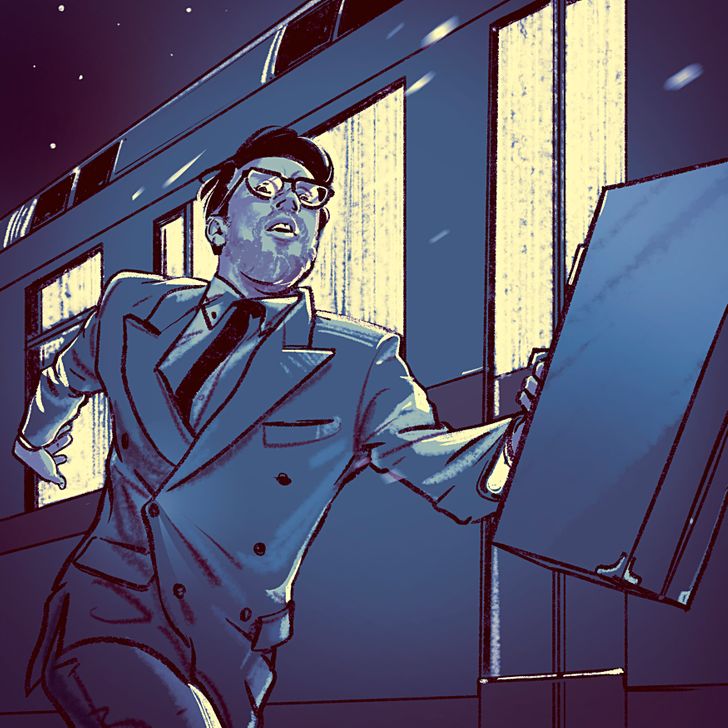
Dreams that have you running after a departing train or running late for an important meeting can occur quite often. According to a dream expert, Michael R. Olsen, they can symbolize the fear of missing out on something very important in your relationships or in the upbringing of your child, for example. If you’re constantly overwhelmed and don’t have much time to accomplish things in real life, your subconscious is signaling that it’s time for you to reconsider your schedule and free up time for really important things.
10. An unknown room
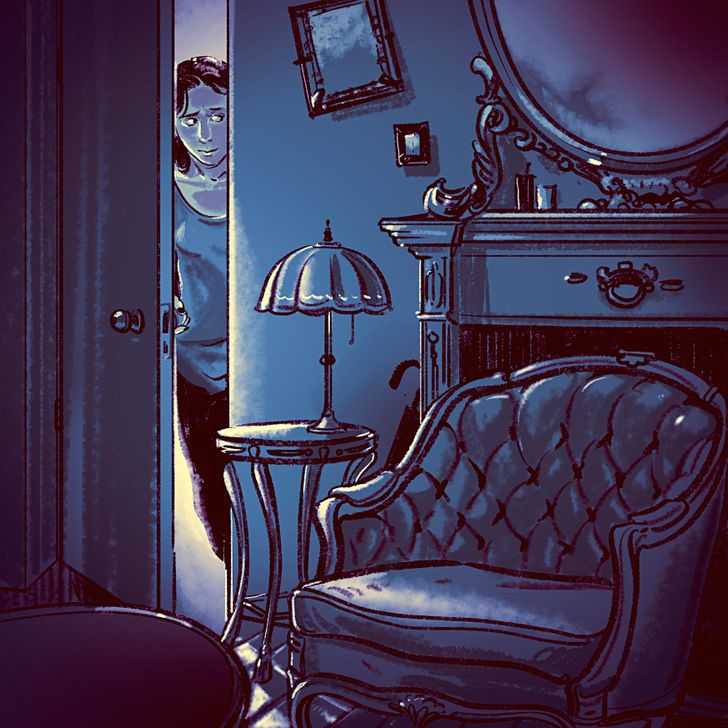
Dreams about new rooms are about self-knowledge. If you find yourself in an unknown house in your dream, it means that you don’t know yourself well and try to neglect some sides of your character. A separate unfamiliar room symbolizes that you have a hidden talent, skill, or opportunity that you don’t use.
A psychotherapist named Eddie Traversa thinks that we subconsciously associate some rooms with certain processes. A kitchen is a place where products get transformed into a finished dish which means that you’re currently going through some inner changes. A bathroom is a symbol of freeing oneself from unnecessary baggage. It might symbolize that it’s time to get rid of something that is not needed any longer. A bathroom is a symbol of cleansing and it means that you feel the necessity to clarify things or see them in a different light. A bedroom signifies the things that worry you in your romantic relationship.
Have you ever experienced any of these dreams or do you usually see something different? Please tell us about it in the comments!
Сlаudiа Саrdinаlе: Неrе’s whаt thе Itаliаn film iсоn lооks likе аt 85

Claudia Cardinale is Italy’s counterpart to France’s Brigitte Bardot. She quickly rose to stardom to almost just as quickly disappear from the scene later on. Now, Claudia Cardinale celebrates her 85th birthday.
The Italian star was originally discovered at a beauty contest held in 1957 by the Unitalia film company. The “most beautiful Italian woman of Tunis” subsequently won a trip to the Venice Film Festival that was to become a decisive turning point in her life. The sultry young woman was born on April 15, 1938, in Tunis, the capital of Tunisia. Her mother was French, and her father Italian.
In 1958, Cardinale, known as CC, played her first role in “Goha” opposite Omar Sharif before being trained as an actress at the Italian Film Academy in Rome. Her talents as an actress renowned for her dauntless rambunctiousness gained her fame, and her gaze into the camera became legendary.
Famous director Luchino Visconti gave her minor roles in “Rocco and his Brothers” (1960), as well as in the historical drama “The Leopard” (1962) with Alain Delon. As she later recounted in a biographical interview, she rebuffed all of her famous film partners, Jean-Paul Belmondo, Marcello Mastroianni, Alain Delon and Burt Lancaster.

A beauty queen turned into a film diva
Cardinale is Italy’s counterpart of Brigitte Bardot. But in contrast to Bardot, Cardinale never appeared nude in a film: “I always thought it was more erotic to leave some room to imagination, hinting at things rather than showing everything,” she told the German magazine Stern in 2014.
CC achieved her breakthrough with her performance in the highly popular Italo western “Once Upon a Time in the West” (1969). The classical western directed by Sergio Leone and starring Henry Fonda and Charles Bronson was shot in Rome’s Cinecittà studios and in Spain with some scenes set in Utah’s Monument Valley. The film that flopped in the US only acquired cult status in Europe.

CC’s career already saw a downswing in the 1970s. She then turned to television films, especially entertainment films where she showed some talent as a comedian. She got her last main role in a movie in 1971 when she starred opposite her main rival, Brigitte Bardot, in the Italo western comedy “Frenchie King.”
Spending time in a jungle with Werner Herzog
Ten years later, CC starred in German director Werner Herzog’s historical film “Fitzcarraldo” (1981). Although Claudia Cardinale had a difficult time enduring the bouts of anger of her eccentric film partner Klaus Kinski, she greatly enjoyed shooting and working with director Werner Herzog: “Being in the middle of the jungle with insects all around me and nothing to eat was one of my most wonderful adventures,” she later stated.
Claudia Cardinale and other heroines of European film
Claudia Cardinale is seen as Italy’s counterpart to France’s Brigitte Bardot. The actress who became a star in the 1950s and 60s now celebrates her 85th birthday.
Claudia Cardinale
She’s the youngest of Italy’s three major female stars. Claudia Cardinale worked with outstanding directors like Luchino Visconti and Federico Fellini. She fascinated audiences with her charming smile and acting skills in westerns, among them “Once Upon a Time in the West” and “The Professionals” (pictured).
Gina Lollobrigida
One of the most highly acclaimed European stars of the 1950s and 60s was Gina Lollobrigida who was born in the East of Rome in 1927. “Lollo” even made it to Hollywood where she was equally showered with praise. In the 1970s, however, she withdrew from showbiz.
Sophia Loren
Another Italian actress, Sophia Loren, who was a few years younger than Lollo, became her fiercest rival. The mutual hatred and jealousy of the two stars was a frequent topic in tabloids. In contrast to Lollobrigida, Sophia Loren continued to perform in movies even as an older woman.
Brigitte Bardot
During the same time, another sexpot rose to stardom in France with movies like “And God Created Woman” and “Love is my Profession.” Brigitte Bardot, the superstar of the Grande Nation, withdrew from film production in the 1970s to devote herself to animal rights causes.
Catherine Deneuve
A decade later, Bardot’s compatriot Catherine Deneuve broke onto the film scene. Deneuve differed much from both Loren and Lollo by playing roles as aloof and myterious women early in her career. Deneueve’s talent as an actress guaranteed her success throughout her life.
Romy Schneider
The two decades between 1960 and 1980 were also the golden era of German-French actress Romy Schneider. Born in Vienna, she made her breakthrough in the German-speaking world as “Sissi” before moving to France. In Paris, she became one of the most charismatic and impressive actresses of European film scene. But in her private life, she was anything but lucky. She died in 1982.
Penélope Cruz
One of the most famous Europen actresses in recent decades is Spanish actress Penélope Cruz. Cruz started her career in her home country before achieving fame in other European countries and, finally, Hollywood. Her performances received a lot of acclaim, especially in films by director Pedro Almodóvar, among them “Volver” (pictured).
Irene Papas
After 1945, actresses from smaller European nations were able to conquer the hearts of audiences across Europe. One of them was Irene Papas who is also renowned as a singer in her home country, Greece. She celebrated her biggest success in “Zorba the Greek” (1964) before also working in other European countries, and in Hollywood.
Tatjana Samoilova
While films from Italy, France, Germany and England dominated the film scene during the postwar era, it should not be forgotten that eastern Europe had much to offer too. One of the biggest female stars of Russian film was certainly Tatjana Samoilova who achieved world fame with the movie “The Cranes are Flying” (1957).
Krystyna Janda
Polish actress Krystyna Janda became known in the 1970s for her performances in films by Polish director Andrzej Wajda. She then performed in international co-productions with stars like Lino Ventura. In her home country, Krystyna Janda is also known as a singer and an an author.
In 1993, CC received a Golden Lion for lifetime achievement at the Venice Film Festival to be followed in 2002 by an “honorary bear” at the Berlinale. The spirited actress performed in more than 100 films.
In 2017, CC once again drew attention at an international film festival. A photo depicting her as a young actress embellished a placard in Cannes where she had often been invited as an honorary guest. On April 15, Claudia Cardinale will turn 80. Happy birthday!
This article was originally published April 15, 2018 and updated.



Leave a Reply